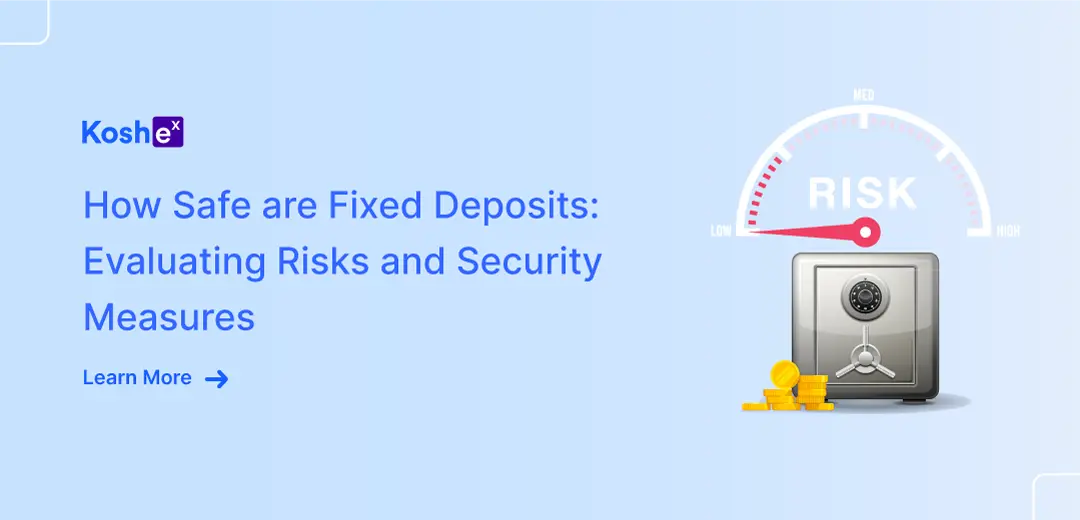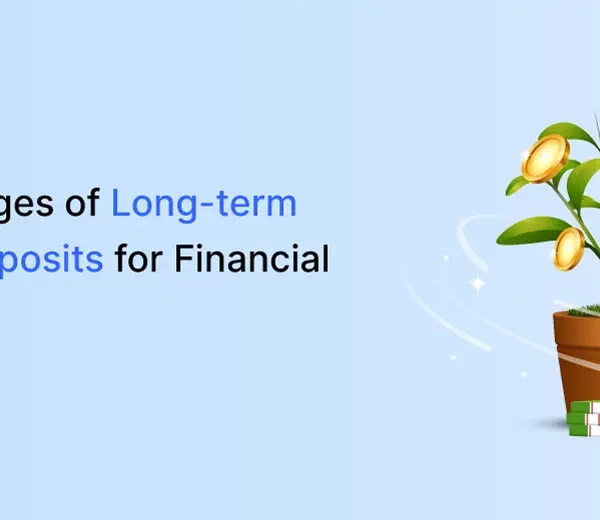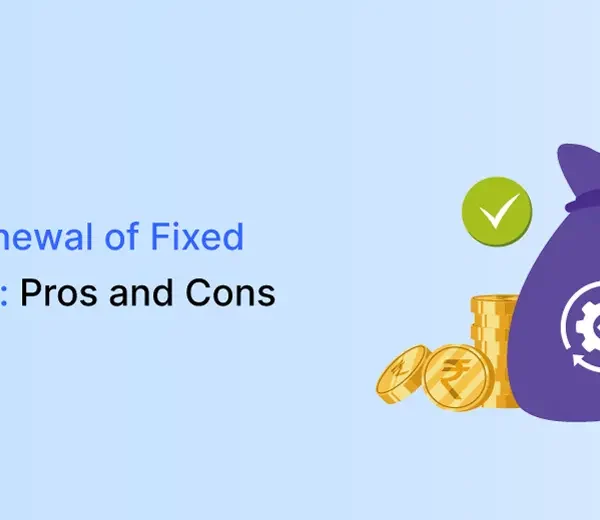Fixed deposits have remained a sensible choice for investors seeking financial security because of their stable and regular returns. Before investing in any fixed deposit, it is important to evaluate the risks and understand the security measures in place. In this article, we explore the different layers of fixed deposits, shedding light on their role as a popular investment option and the critical need to assess risks and security safeguards.
Fixed deposits, often referred to as time deposits, offer individuals a straightforward and low-risk method to grow their savings. A predetermined amount is invested for a specified period, during which the principal amount grows through guaranteed interest accrual. This concept has resonated with generations of investors, standing as a beacon of financial stability.
In this pursuit of financial well-being, the emergence of Koshex dedicated to facilitating fixed deposits, mutual funds, smart deposits, and digital gold, has simplified the investment process. It provides access to your entire financial journey, from tracking your net worth to investing in varied options. Sign up with Koshex today!
Understanding Fixed Deposits
A fixed deposit is a financial arrangement where an individual deposits a lump sum amount with a financial institution for a specified period. This period is agreed upon at the time of deposit. During this tenure, the principal amount remains untouched while accruing interest at a predetermined rate.
Benefits of Fixed Deposits
In this section, we will look at the benefits that make fixed deposits popular among investors:
Stability and Reliability
Fixed deposits are synonymous with stability. The predetermined interest rate, agreed upon at the beginning of the tenure, ensures that the growth of your investment is shielded from the fluctuations of the market.
Guaranteed Returns
Unlike other investment avenues where returns are subject to market performance, fixed deposits promise a fixed interest rate throughout the tenure. This predictability empowers investors to plan and allocate their funds with a clear understanding of the returns they will receive.
Capital Preservation
The principal amount you invest remains untouched, serving as a foundation for your financial growth. Whether the market experiences fluctuations or economic shifts, your principal amount is shielded from external factors.
Ideal for Short-Term Goals
Fixed deposits are versatile tools that cater to various financial goals. For short-term aspirations such as creating an emergency fund, planning for a vacation, or managing upcoming expenses, fixed deposits offer a secure means to grow your funds.
Evaluating Risks Associated with Fixed Deposits
Regarding financial investments, even secure fixed deposits are not immune to certain risks. It is essential to understand the potential challenges and FD risk assessments that could influence the trajectory of your investment.
Interest Rate Risk
Fluctuating interest rates serve as a dynamic force that can influence the overall returns from fixed deposits. When you lock in a fixed interest rate at the beginning of your tenure, you are shielded from the market’s volatility.
However, this can work both ways. If prevailing interest rates rise during your tenure, your fixed deposit’s returns might appear less lucrative compared to other investment options with higher interest rates. Being mindful of this risk ensures that your returns remain aligned with your expectations.
Inflation Risk
While fixed deposits offer stable returns, the pace at which they grow might not always keep up with the rising cost of goods and services. This could lead to a scenario where the real value of your returns diminishes over time. It is crucial to strike a balance between the guaranteed returns of fixed deposits and investments that have the potential to outpace inflation.
Liquidity Risk
Fixed deposits offer a predefined tenure, which means your funds are locked in for the agreed-upon period. While this ensures a predictable growth trajectory, it also presents a liquidity risk. Accessing your funds before the maturity date might come with limitations or penalties. This risk assessment becomes relevant if you anticipate needing the funds for unforeseen emergencies or opportunities.
Security Measures for Fixed Deposits
There are different security measures for fixed deposits to safeguard the interests of investors in case of a default by the financial institution. These are as follows:
Government Insurance
The Reserve Bank of India’s (RBI) Deposit Insurance and Credit Guarantee Corporation (DICGC) insures deposits up to Rs. 5 lakh. This plays a pivotal role in the security of your fixed deposits.
This ensures that a certain portion of your deposited amount is insured, safeguarding it in the event of unforeseen circumstances. This safety net underscores the trustworthiness of fixed deposits and offers peace of mind to investors.
Bank Reputation and Credit Rating
The reputation of the financial institution where you choose to deposit your funds holds considerable weight. Established banks with a track record of reliability and professionalism offer an added layer of security.
Monitoring Regulatory Compliance
Regulatory authorities play a crucial role in ensuring that financial institutions adhere to predefined guidelines and standards. The regulations are designed to protect the interests of depositors and maintain the financial system’s integrity. Financial institutions adhering to the regulations give more security to the investors.
Also read: Fixed Deposit Advantages and Disadvantages of Fixed Deposits
In Conclusion
In the landscape of financial investments, fixed deposits stand as a beacon of stability and reliability. Its straightforward nature and guaranteed returns in the form of the highest interest rates make it a popular choice among investors. The ability to shield your investments from market fluctuations, preserve your capital, and cater to short-term financial goals sets fixed deposits apart.
However, it is important to understand that even fixed deposits are not completely immune to risks. Fluctuating interest rates, inflation, and liquidity concerns can impact the trajectory of your investment.
The safety measures in place for fixed deposits further enhance their credibility. Government-backed deposit insurance schemes, the reputation of the financial institution, and regulatory compliance all contribute to safeguarding your investments.
When considering fixed deposits or any other investment avenue, it is crucial to evaluate your unique financial situation, risk appetite, and goals. Each investment choice comes with its own set of benefits and risks, and finding the right balance is vital to building a diversified and resilient portfolio.
Embark on your financial journey with confidence. Sign up with Koshex today and gain access to personalized insights, seamless transactions, and a comprehensive suite of financial products.
Frequently Asked Questions (FAQs)
1. Are fixed deposits affected by market fluctuations?
Ans. Fixed deposits are designed to shield your investment from market volatility. The predetermined interest rate ensures stability, even if the market experiences fluctuations.
2. Can I access my fixed deposit funds before the maturity date?
Ans. While fixed deposits offer predictability, accessing your funds before maturity might have limitations or penalties.
3. How do fixed deposits fare against inflation?
Ans. Fixed deposits offer stable returns, but they might not always outpace inflation. Balancing fixed deposits with investments that have the potential for higher returns can help counter inflationary effects.
4. What is deposit insurance, and how does it work?
Ans. Deposit insurance is a safeguard provided by the government, ensuring a portion of your deposited amount is protected in case of unforeseen circumstances affecting the financial institution.
5. Can I rely solely on fixed deposits for long-term financial growth?
Ans. Diversification is key for long-term growth. Combining fixed deposits with other investments can potentially offer better returns over the long run.
6. Why are fixed deposits low risk?
Ans. FDs can be used as loan collateral and are not impacted by market volatility. These fixed deposits have little risk and provide guaranteed earnings. Because of this.









Leave a Comment